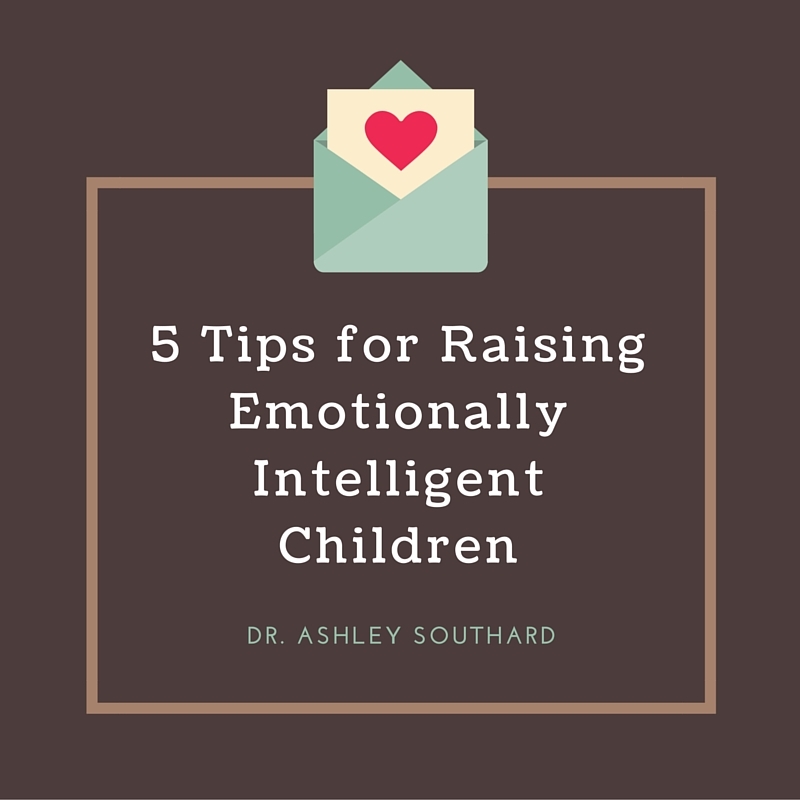5 Tips for Raising Emotionally Intelligent Children
by
As a mom of a 4-year old {very emotional} girl and a clinical therapist specializing in the treatment of eating disorders and trauma/abuse, I have evolved into a firm believer that learning how to navigate emotions ~ not avoid them or numb them ~ is at the heart of effectively dealing with the many curve balls life throws us without turning to food, drugs, alcohol, toxic relationships, and other creative coping mechanisms.
Learning the art of navigating emotions is hard to do as an adult ~ it takes a lot of work to undo all the messages you have gathered along the way telling you to “just get over it,” or “leave the past in the past,” or somehow make it be “fine.” How nice would it have been if you could have learned how to really deal with your emotions when you were a kid?
If you guide children in some capacity (e.g., parent, teacher, nanny, therapist), then you have the golden opportunity to teach them this really important life skill that so many adults never had the good fortune of learning.
Here are the top 5 things you can do to help strengthen children’s emotional health:
- Ask them how they’re feeling. Children, especially younger ones, may not know how they’re feeling, but asking them brings their attention to this part of their person. Try to keep your questions focused on specific moments or experiences, and be sure to balance your focus on both positive and not-so-positive emotional experiences. You will likely need to offer specific emotions to help them begin to label what they’re feeling. Sample questions include:
- Is there anything that happened at school today that made you feel {emotion}?
- When {friend’s name} didn’t want to play with you, how did you feel?
- When you think about flying to California to visit grandma and grandpa, how do you feel?
- Validate how they’re feeling. When a child shares a feeling, acknowledge that you can understand how they feel that way. If they share an uncomfortable emotion, like sad or mad, first validate that they feel this way before trying to help them feel better. Many times we will naturally start to feel better if we know that we’re not alone in this emotion. If validation and empathy are difficult for you, like they are for so many, you may find this short cartoon by Dr. Brené Brown helpful.
- Talk about how you are feeling. Children are watching us like hawks and trusting us to teach them the ways of the world. Be a fantastic role model by opening up about how you’re feeling. Use family times like mealtime, weekend playtime, or driving in the car to share some of your daily experiences that are emotional for you (just ensure that your story is age-appropriate for your child). Examples may include:
- At work today my friend told me that I did a good job on my project. I worked so hard on that project and her comment made me feel so happy and proud of myself.
- Today I visited a new eye doctor and I felt nervous about meeting her. But after my appointment I felt so relieved because she was so nice and she did a great job of helping my eyes feel better.
- When you run away from me and yell, “No!” I feel sad. I really want us to treat each other with calmness and respect.
- Explain the importance of talking about feelings. For some children it is a natural tendency to internalize or hold in their emotions. In this case, it’s important to explain how the body functions better when feelings are not being stuffed and/or dismissed. For young children, you can say something like, “If you don’t talk about how you feel, then those feelings stay stuck in your body and make your brain make bad choices. But when you talk about how you feel, your body feels calm and then your brain can make good choices.” For older kids, you can say something like, “Our bodies are not designed to hold in painful emotions, like sadness, hurt, anger, and loneliness. If those feelings get trapped inside, they often sneak out sideways in the form of anger outbursts, pouting, lying, or temper tantrums. Do you ever notice that happening with your body?” Helping them see that they can do something proactive to deal with their emotions and control their behavior is very important to their overall emotional health.
- Encourage children to think about how others might be feeling. Teaching children to be mindful of their own emotions and others’ emotions helps them become compassionate adults who are skillful at working with people and building healthy relationships. When they are kind and helpful, ask them to think about how the recipients of their kindness likely feel. Similarly, when they are rude or disrespectful, ask them to think about how this makes others feel. Some sample questions include:
- How do you think these families will feel when they open up our Secret Santa gift?
- How do you think {friend’s name} feels when you exclude him from the game?
Raising emotionally intelligent children requires daily attention to the process. Like any skill, learning how to effectively deal with emotions must be constantly practiced and reinforced, and every day is an opportunity. If we all work together to offer the next generation of kids a healthy dose of emotional intelligence, I’m confident our world will be a much happier, more connected place!
Dr. Ashley Southard is a Clinical Therapist in Scottsdale, Arizona. She specializes in the treatment of eating disorders, emotional/binge eating, trauma/abuse, and relationships.







